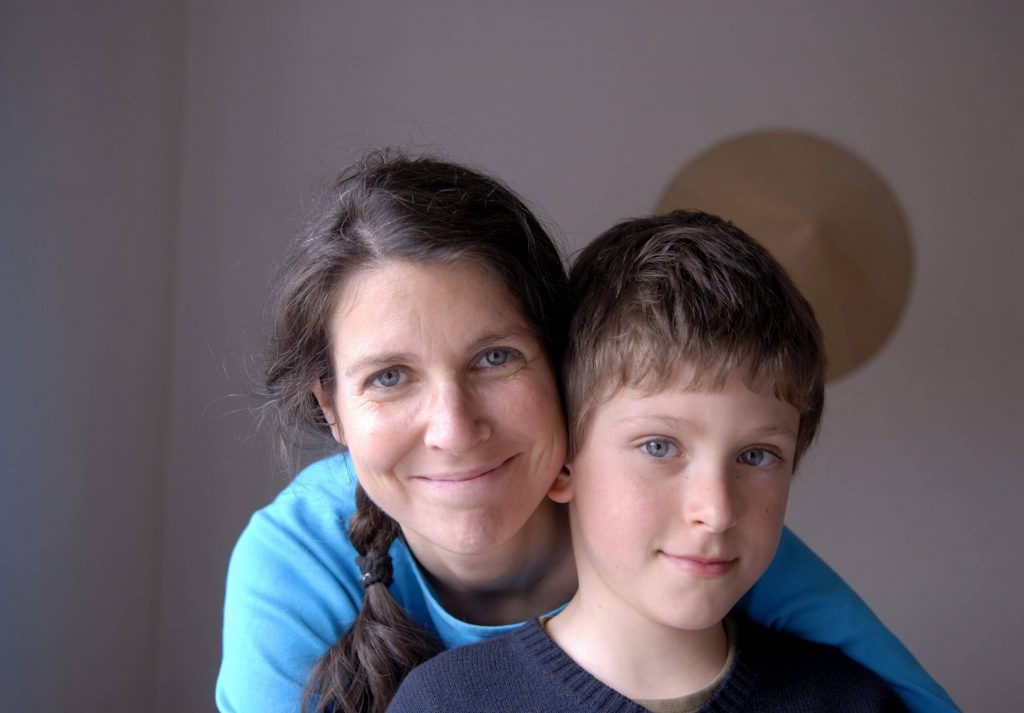
Testimonial: "With the Behaviour Support Plan in place, everybody else can now see the Eric I’ve always seen." - Imogen
Thriving with a Behaviour Support Plan
13 April 2021
By the end of my son Eric’s time in Year 2, I felt like I was at my wit’s end.
Suspended 10 times during the year, with constant phone calls from the school to come and pick him up and to speak about his behaviour, I felt upset and alone.
Once I went to Eric’s classroom to collect him early, and found him standing in the middle of the room screaming at the top of his lungs. I’d never seen him behave that way before. Even my husband couldn’t believe just how worrying Eric’s behaviour was when I told him.
Eric has Attention-Deficit Hyperactivity Disorder and Oppositional Defiant Disorder, but it’s only if someone pushes his buttons that he gets angry and overreacts. So this behavior – the screaming in the classroom – was bewildering to me.
Originally, the school made me feel like there was something wrong with my son – and Eric felt like he was constantly in trouble. They moved him into a Year 6 classroom to do his written work, away from his own teacher and friends.
They would put him in the Library during lunchtimes so he wouldn’t be around other students. He has such an adverse reaction to the word ‘Library’ now – to him it’s not a place for learning, but where he’s sent to be away from his friends.
After all these incidents in Year 2, I called the ACD Support Line for advice. They introduced me to new words, documents, plans and disability rights.
They spoke to me about a Student Support Group which includes the class teacher, the Principal, perhaps your child’s therapists, and others responsible for your child’s learning and wellbeing at school. Apparently we should’ve been having Student Support Group meetings every term to discuss Eric’s learning needs and how better to support him.
I also learnt about Behaviour Support Plans which are documents that set clear expectations around both behaviour and support for your child.
ACD helped me provide and fill out a Behaviour Support Plan for the school. It included things like my son’s triggers, such as something a friend might say, and what rewards he liked for good behavior, such as gold stars. The school said they were shocked at how detailed our Behaviour Support Plan was!
Behaviour Support Plans are sometimes seen as negative things – something that’s only introduced after behavioural issues have escalated. But I think a plan like this can be really helpful. Finally Eric’s teacher and school had a tool to help them work with him.
Having a Behaviour Support Plan made everything feel more professional and really changed everyone’s mindset. Because of the Behaviour Support Plan the school has moved from punishing Eric’s disruptive behaviour to noticing and encouraging him when he behaves well.
Eric’s school had no idea they had to sit down and set clear expectations around behaviour and support. There was just such a lack of knowledge.
With the Behaviour Support Plan in place, everybody else can now see the Eric I’ve always seen. Now he comes home and says “Teacher says how well behaved I am”.
Eric really likes this attention and encouragement – his teacher now communicates with me regularly, and comments on how well he’s going! It’s such a contrast to the daily telephone calls asking me to pick him up from school because of his behaviour.
If any parent with a child like Eric is reading this, I have a few tips about Behaviour Support Plans:
Firstly, be proactive about your Behaviour Support Plan. I can’t go back in time, but if I had known about Behaviour Support Plans, I would have started one with the school from Prep. ACD also has resources you can send the school.
Children like Eric can easily feel lost and disengaged at school. Having a plan in place can help to stop things escalating and give the school a better understanding of what triggers your child and what can be done to prevent that happening.
Secondly, your Behaviour Support Plan should focus on recognising good behaviour rather than punishing what is seen as bad behaviour. Our school started giving Eric stars and certificates when he was doing well – and it’s working.
Today, Eric is 9 years old and in Year 4. At the start of every school year, his Student Support Group and Behaviour Support Plan are reviewed by the school, and we have regular meetings throughout the school year. When I now communicate with his school, I’m less stressed, more positive, and more confident.
To learn more about accessing behaviour support at school, and how you can start a Behaviour Support Plan with your child’s school, visit our factsheet: https://www.acd.org.au/behaviour-support-at-school/
Read more Real stories